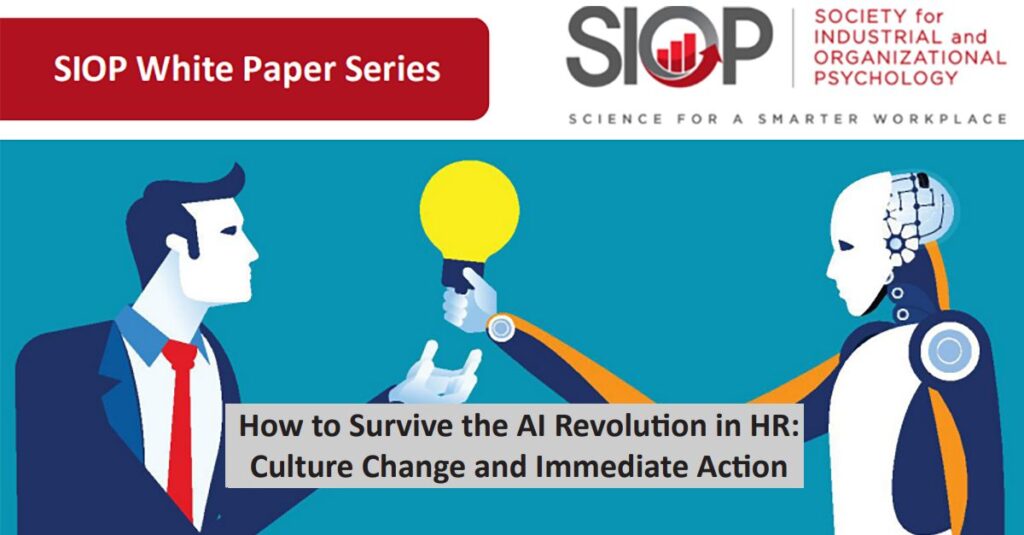How to Survive the AI Revolution in HR

I’m excited to announce the release of my action-oriented SIOP white paper coauthored with Sara Gutierrez, “How to Survive the AI Revolution in HR: Culture Change and Immediate Action.”
In this guide, Sara and I explore current and emerging AI technologies at their intersection with HR and I-O psychology. We discuss critical concerns and offer practical recommendations to help HR professionals navigate the rapidly evolving landscape.
Our white paper covers:
• A summary of the current state of AI in HR, highlighting 8 key concerns.
• An overview of 7 HR domains where AI is likely to trigger significant changes, with multiple examples.
• 5 actionable recommendations to ensure HR and I-O professionals stay ahead.
The full paper (freely available via the link) gives the details, but the key recommendations are:
1) Constant upskilling: HR needs to put an effort into constantly upskilling decision-makers about AI. A little training isn’t going to cut it anymore. You need your decision-makers to develop AI fluency.
2) Cross-functional collaboration: HR needs to collaborate across functional groups to manage AI initiatives. Calling up a vendor, buying a product, and hoping for the best is not going to get you what you want out of AI. You need internal subject matter experts.
3) Change management: HR needs to engage in effective change management. This is not historically a strong area for HR! We characterize this as a culture shift. HR needs to learn to ADAPT.
4) Embrace AI’s potential as a neutral collaborator: HR needs to understand that AI is morally neutral. It can be used for good or evil. More worrying, it’s very easy to unintentionally contribute to evil! HR needs to listen to employees, to understand how they are experimenting with AI, and LISTEN to them in pursuit of meaningful change.
5) Ethical AI: HR needs to actively pursue ethical use of AI. There are no easy answers. There are hundreds of “AI ethics frameworks” out there, and most likely only a few of them might be a good fit for your organization. You need to work out your own values and STICK TO THEM. And most importantly, do not immediately choose the “remove all humans from this process” option, no matter what kind of cost savings it seems to promise!
If HR and I-O professionals do not take more of a lead, the push will be made by process optimization engineers, who often prioritize short-term profits over long-term organizational health. As front-line defenders of both organizational success and employee well-being, we’re the front line! Don’t let it happen! The Society for Industrial and Organizational Psychology (SIOP) could be humanity’s last line of defense (at least in the workplace)!!Ac
| Previous Post: | How to Reduce Student Entitlement |
| Next Post: | Mr. Beast Discovers HR |